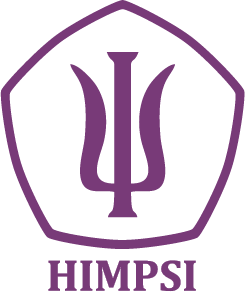HUBUNGAN STRES AKADEMIK DAN PSYCHOLOGICAL CAPITAL MAHASISWA SEMESTER ANTARA FAKULTAS PSIKOLOGI UNIKA ATMA JAYA JAKARTA
DOI:
https://doi.org/10.25170/manasa.v11i2.3588Abstract
In order to succeed the implementation of the policy of Merdeka Belajar Kampus Merdeka in The
Faculty of Psychology Unika Atma Jaya, student class of 2019 and 2020 are required to take the
short semester. In fact, the short semester aims to give the benefit both students and universities
so that the curriculum transformation could be well applied. However, the Short Semester is
perceived as a tough academic requirement for students. Many students feel pressured to take the
short semester, especially during this pandemic. Therefore, to deal with academic stress, students
need to optimize their psychological capital so that they are able to deal with the learning
difficulties. Currently, the psychological capital approach is being developed in education and
learning. The aim of this study is to examine the relationship between academic stress and
psychological capital in semester students between FPUAJ. This study uses a quantitative
correlation method to analyse the correlation between academic stress and psychological capital
of short semester students in Unika Atma Jaya. This study involves 109 participants (65
participants from class of 2019 and 44 participants from class of 2020). The researcher used the
Student-Life Stress Inventory and PsyCap Questionnaire that is adapted to the study context and
through the pilot study process. The results of the study shows that academic stress and
psychological capital have a significant negative correlation. These findings show that the higher
the psychological capital of students, the lower their academic stress level will be. Resiliency in
psychological capital has also been proven to be the dimension that has the biggest significant
negative correlation with academic stress than other psychological capital dimensions
References
Affani, A. R. (2021). Tingkat stres akademik pada mahasiswa dalam pembelajaran daring selama pandemic covid-19 (Skripsi, Universitas Muhammadiyah Malang, Indonesia). Retrieved June 5, 2022, from https://eprints.umm.ac.id/75210/1/SKRIPSI.pdf
Alfari, S. (2019). Semester pendek, penting nggak? Ini 6 hal penting yang harus kamu tahu. https://www.ruangguru.com/blog/6-hal-penting-tentang-semester-pendek
Asy’ari, M. U., Bukhori, B., Ma’shumah, L. A. (2019). The effect of quality of school life and resilience on academic stress in students. Jurnal Psikologi Integratif, 7(2), 185-198.
Baktiani, V. F., & Kusdiyati, S. (2020). Hubungan psychological capital dengan tingkat stres pada mahasiswa tingkat satu. Prosiding Psikologi, 6(2), 527-531.
Fujiawati, F. S. (2016, April). Pemahaman konsep kurikulum dan pembelajaran dengan peta konsep bagi mahasiswa pendidikan seni. Jurnal Pendidikan dan Kajian Seni, 1(1), 16-28. Retrieved October 25, 2021, from https://jurnal.untirta.ac.id/index.php/JPKS/article/view/849/666
Gadzella. (1994). Student-life stress inventory: Identification of and reactions to stressors. Psychological Reports, 74, 395-402.
Gaol, N. T. L. (2016). Teori stres: Stimulus, respons, dan transaksional. Buletin Psikologi, 24(1), 1-11. Diakses pada 3 November 2021, dari https://www.researchgate.net/publication/311784423_Teori_Stres_Stimulus_Respons_dan_Transaksional
Gravetter, F. J., & Wallnau, L. B. (2017). Statistics for the behavioral sciences (10th ed.). United States: Cengage Learning.
Hauke, J., & Kossowski, T. (2011). Comparison of values of pearson’s and spearman’s correlation coefficients on the same sets of data. Quastiones Geographicae, 30(2), 87-93.
Javaheri, A. (2017). Psychological capital: An internal resource for counseling students coping with academic and clinical stress (Dissertation, The College of William & Mary in Virginia).
Kompas.com. (2020, Januari). 4 alasan nadiem makarim mengeluarkan kebijakan kampus merdeka. Retrieved December 8, 2021, from https://edukasi.kompas.com/read/2020/01/25/20283891/4-alasan-nadiem-makarim-mengeluarkan-kebijakan-kampus-merdeka?page=all
Kumar, R. (2011). Research methodology: A step-by-step guide for beginners (3rd ed.). New Delhi: SAGE Publications.
Lazarus, R. S., & Folkman, S. (1984). Stress, appraisal, and coping. New York: Springer Publishing Company.
Lukito, C. P. (2018). Hubungan hope, self-efficacy, resilience, dan optimism dengan entrepreneurial intention mahasiswa fakultas ekonomi universitas kristen petra. AGORA, 6(2). Retrieved 5 June, 2022, from https://media.neliti.com/media/publications/287297-hubungan-hope-self-efficacy-resilience-d-1cfa1b21.pdf
Luthans, F., Avey, J., Avolio, B., Norman, S. M., Combs, G. (2006). Psychological capital development: Toward a micro-intervention. Journal of Organizational Behavior, 27(3), 387-393. Doi 10.1002/job.373
Luthans, B. C., Luthans, K. W., Avey, J. B.(2014). Building the leaders of tomorrow: The development of academic psychological capital. Journal of Leadership & Organizational Studies, 21(2), 191-199. Retrieved June 5, 2022, from DOI: 10.1177/1548051813517003
Luthans, F., Youssef, C. M., Avolio, B. J. (2007). Psychological capital: Developing the human competitive edge. New York: Oxford University Press.
Misra, R., & Castillo, L. G. (2004). Academic stress among college students: Comparison of American and international students. International Journal of Stress Management, 11(2), 132-148. Retrieved December 8, 2021, from https://www.researchgate.net/publication/228367874_Academic_Stress_Among_College_Students_Comparison_of_American_and_International_Students7_of_doctoral_degrees_earned_in_the
Monteiro, N. M., Balogun, S. K., Oratile, K. N. (2014). Managing stress: The influence of gender, age, and emotion regulation on coping among university students in botswana. International Journal of Adolescence and Youth, 19(2), 153-173. Retrieved June 8, 2022, from doi: 10.1080/02673843.2014.908784
Nathania, K., Edwina, O. I. P., Fanuel, M. (2018). Hubungan antara optimism dan academic adjustment mahasiswa semester tiga fakultas psikologi di universitas “x” bandung. Humanitas, 2(1), 49-62. Retrieved from June 17, 2022, from https://journal.maranatha.edu/index.php/humanitas/article/view/1045/838
Nindyati, A. D. (2020). Kecerdasan emosi dan stres akademik mahasiswa: Peran jenis kelamin sebagai moderator dalam sebuah studi empirik di universitas paramadina. Jurnal Psikologi Sains dan Profesi (JPSP), 4(2), 127-134.
Nugraha, N. L. (2017). Pengaruh psychological capital terhadap burnout pada perawat (Skripsi, Universitas Muhammadiyah Malang, Indonesia). Retrieved November 15, 2021, from https://eprints.umm.ac.id/44067/1/jiptummpp-gdl-naufalluth-50510-1-skripsi-a.pdf
Octasya, T., & Munawaroh, E. (2021). Level of academic stress for students of guidance and counseling at semarang state university during the pandemic. Journal of Professionals in Guidance and Counseling, 2(1), 27-33. Retrieved June 2, 2022, from https://doi.org/10.21831/ProGCouns
Ostertagova, E., & Ostertag, O. (2013). Methodology and application of one-way anova. American Journal of Mechanical Engineering, 1(7), 256-261. Retrieved June 8, 2022, from https://www.researchgate.net/publication/259291691_Methodology_and_Application_of_One-way_ANOVA
Paula, V., Dewi, F. I. R. (2020). Peran psychological capital terhadap student engagement mahasiswa keperawatan tingkat akhir. Nursing Current, 8(1), 85-95. Retrieved May 16, 2022, from DOI:10.19166/nc.v8i1.2725
Putra. S. D. (2015). Uji validitas konstruk pada instrumens student-life stress inventory dengan metode confirmatory factor analysis. Jurnal Pengukuran Psikologi dan Pendidikan Indonesia, 4(3), 1-11. Retrieved from 2 June, 2022, from https://journal.uinjkt.ac.id/index.php/jp3i/article/view/9298/pdf
Reddy, K. J., Menon, K., & Thattil, A. (2017). Understanding academic stress among adolescents. Artha-Journal of Social Sciences, 16(1), 39-52. Retrieved November 3, 2021, from https://doi: 10.12724/ajss.40.4
Riolli, L., Savicki, V., Richards, J. (2012). Psychological capital as a buffer to student stress. Scientific Research, 3(12A), 1202-1207. Retrieved June 1, 2022, from https://www.scirp.org/html/26117.html
Shaleh, A. R. (2015). Analisis factor konfirmatorik skala modal psikologis (psychological capital). In, Embaracing in a new way of life: Promoting positive psychology for better a mental health. Conference proceedings of the Fakultas Psikologi Universitas Katolik Widya Mandala, Surabaya. Retrieved from June 2, 2022, from https://www.researchgate.net/publication/330701246_ANALISIS_FAKTOR_KONFIRMATORIK_SKALA_MODAL_PSIKOLOGIS_PSYCHOLOGICAL_CAPITAL
Subandy, K., & Jatmika, D. (2020). Hubungan psychological capital dengan coping stress pada mahasiswa yang bekerja. Jurnal Psibernetika, 13(2), 68-82. Retrieved December 8, 2021, from DOI:10.30813/psibernetika.v13i2.2382
Suseno, A., Hartati, S., & Astuti, T. P. (2013). Kecenderungan perilaku agresif ditinjau dari stres akademik pada siswa SMA negeri 1 pemalang. Jurnal EMPATI, 2(3), 222-231. Retrieved June 17, 2022, from https://doi.org/10.14710/empati.2013.7324
Urbina, S. (2014). Essentials of psychological testing. New Jersey: John Wiley & Sons Incorporated.
Van der Molen, M. J. W., et al. (2014). Fear of negative evaluation modulates electrocortical and behavioral responses when anticipating social evaluative feedback. Frontiers in Human Neuroscience, 7, 1-12. Retrieved June 16, 2022, from https://doi.org/10.3389/fnhum.2013.00936
Yong, W., Hutagalung, F. D., Saad, M. R. (2019). The level of psychological capital in chinese university efl lecturers. International Journal of Education, Psychology and Counseling, 4(33), 223-237. Retrieved from June 8, 2022, from DOI:10.35631/IJEPC.4330018
You, J. W. (2018). Testing the three-way interaction effect of academic stress, academic self-efficacy, and task value on persistence in learning among Korean college students. The International Journal of Higher Education Research, 76, 921-935. Retrieved November 13, 2021, from https://doi.org/10.1007/s10734-018-0255-0
Downloads
Published
Versions
- 2023-01-31 (2)
- 2023-01-25 (1)
Issue
Section
License
Copyright (c) 2023 MANASA

This work is licensed under a Creative Commons Attribution-NonCommercial-ShareAlike 4.0 International License.









.png)
.png)

